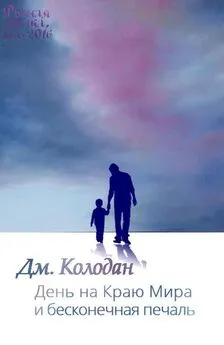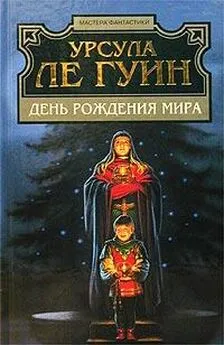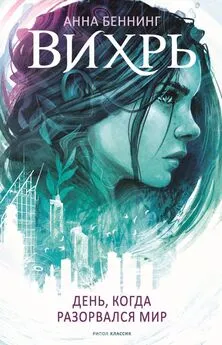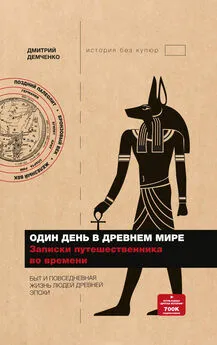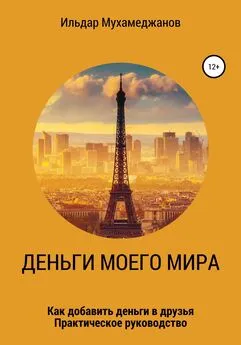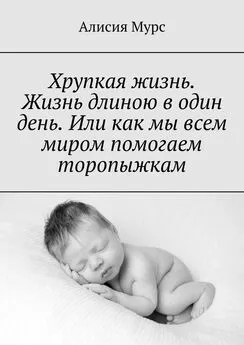Роллан Сейсенбаев - День, когда рухнул мир
- Название:День, когда рухнул мир
- Автор:
- Жанр:
- Издательство:неизвестно
- Год:неизвестен
- ISBN:нет данных
- Рейтинг:
- Избранное:Добавить в избранное
-
Отзывы:
-
Ваша оценка:
Роллан Сейсенбаев - День, когда рухнул мир краткое содержание
Роллан Сейсенбаев – признанный классик казахской литературы. Его романы, повести, рассказы издавались в самых престижных журналах и издательствах России, Англии, Америки, Германии, Италии, Венгрии, Польши, Японии и Кубы.
Роллан Сейсенбаев награжден «Золотым офицерским крестом» Польши, «Золотым Рыцарским Крестом» Венгрии, орденом «Дружбы» Кубы за заслуги перед литературой. Он является обладателем множества международных литературных премий.
Крупнейшие критики мира называют рассказы Роллана Сейсенбаева жемчужинами. Поистине Он уникальный Мастер слова.
Роллан Сейсенбаев стал своеобразным эталоном современной казахской интеллектуальной прозы.
День, когда рухнул мир - читать онлайн бесплатно ознакомительный отрывок
Интервал:
Закладка:
Our bullock cart was in the lead. When I glanced around I saw a file of wagons and the old men driving the herd. Suddenly a car stopped next to our cart and my father and the lieutenant-colonel stepped out.
„The sodiers will choose a place to stop-over for you,“ said the lieutenant-colonel.
„What?! Are you saying they know the hills better than we do?“ said grandfather angrily.
„Well, they know“ best…» said the lieutenant-colonel, obviously displeased with grandfather’s words.
«Yes, of course, you’re clever and we’re stupid. You’re the ones sending us to the death and yet you know best,» said grandfather, spitting.
Grandmother gently touched his shoulder.
«Have you gone completely mad in your old age?» she said in an angry whisper. «Perhaps, you don’t care what happens to you, but think of your son. You’ll talk yourself into being tied-up and then we won’t be able to leave…»
«Be quiet, woman!» said grandfather by now totally incensed. «This is our homeland. So let them say what they intend to do with it!»
He was a hot-tempered man but just. At the end of the twenties, when Genghiztau was being strangled by famine, he left for – the town. But even there things weren’t easy – only he and one of his children, my father, survived.
The fellow-villagers surrounded us. Now, when I look back after all these years, I think grandfather somehow instinctively sensed what really threatened the lives of these simple people. How else can I explain his outburst – he was an intelligent, calm person, who certainly understood that his words would not change anything. Absolutely nothing. They eyed each other – the tall, stately lieutenant-colonel and the stooped, yet still powerful, gnarled old man, whose strong hand firmly gripped his whip.
«Do you know, you official, what these people have had to go through? No, you have no idea. You do not understand that this land is the land of a great and sacred people! We have lived peacefully roaming these steppes for centuries, without offending anyone. Our summer pastures are here. Our Abai was born here. Later he became an inconvenience to the powers that be and we would be sent to Siberia for mere mention of his name. Then our great poet and philosopher Shakarim, who was befriended by your Tolstoy, was shot, and once again if a Kazakh were to just hint at his name, before he knew it he would find himself in Siberia. Our best people died in exile… And here you are just arrived from Semipalatinsk – you don’t even know that our entire steppe from the village to Semipalatinsk was strewn with human corpses. Hunger-have you any idea what that is? Do you know how many it wiped out? And then came the war. And how many perished – every second of our dzhigits fell in a faraway land. And take a look at what collective farmers eat, what they receive for a day’s labour. We don’t live, we exist. It’s not that many have forgotten the taste of meat, it’s, the taste of bread that they don’t remember. For each collective farm’s sheep that went missing we paid for with our heads. So, tell me, you official, when will our people begin to live? And will they live at all? You know you are sending us to our death. Isn’t that so?»
People listened in silence. They averted their eyes. They agreed with the old man but his outspokeness frightened them and some of them moved away, a blank expression on their faces, as if to say, «See no evil, hear no evil, speak no evil.»
«Where do you think you’re going? Stand still and listen to the truth! Have you lost both your reason and your honesty? Although today, it seems, for many honesty is a stone around one’s neck. But what use will you be to anyone without honesty, without a conscience? Have you ever thought about that?»
People froze in shame. And this is where my father interfered.
«Alright, Ake-Father, thank you for the lecture. However, we are all adults and an order is an order…»
However, he also avoided looking straight into grandfather’s eyes and I was mortified. I understood that at the time he was thinking that he would have to pay for grandfather’s monologue. But I wanted grandfather to tell the army officer more about our homeland. I thought that it was unlikely that the army officer knew anything coherent about us. This was probably the first time that he had ever seen any Kazakhs. Perhaps he thinks we are all sheep and he is a bear. I was feeling annoyed but just then the lieutenant-colonel went up to grandfather and embraced him.
«I do understand you, old man. We have all suffered. We have suffered more than any other nation. We lost the father of our people, Stalin, under whom the nation defeated fascism. And now a new danger threatens us. Do you know that the Americans have already dropped an atom bomb over Japan? And now they are threatening us and so we must defend ourselves. We do not want to attack anyone but we must be vigilant at all times. Am I not right? Yes, we are carrying out tests, but all measures have been taken to ensure that the local population is not.endangered. This is why we suggested that you leave the village. Therefore, insisting that we are driving you to your death is hardly justified. We have no choice – we want to save the country from an American invasion.»
Grandfather, frowning, did not speak. Then, turning around abruptly, he went towards his bullock cart. My father patted me on the shoulder and tousled my hair.
«Alright then, off you go. Help grandfather and grandmother as we agreed,» he said.
I nodded in agreement and then spontaneously looked up at the sky – what if an American bomb was already flying towards us. But the sky was clear, not a single cloud, a clear peaceful sky…
«What will you eat?» grandmother asked my father. «We have some flour, let’s share it.»
«It’s not necessary. We have provisions of tinned food,» answered father. «Don’t worry about me. It’s better that you do all that the army bids you to do…»
«If you really get hungry, then kill the hens. I’ve left them for you.» Grandfather lashed the horse with his whip, ignoring father’s last words, and we set off.
I MISS MY FATHER. My wife and I were walking around the shops attempting to buy something «typical of Moscow» to take to Semipalatinsk. There were queues everywhere for everything, people were snatching pieces of sausage wrapped in polythene, from each other, jostling each other for meat and cheese. Good quality candy, which my father used to like very much, had disappeared. I can’t find anything for my mother. I’ll just have to accept the fact that this evening, for the first time, I will fly to my homeland, to my father’s grave, with empty hands.
My wife and I walked silently down the Arbat. It was crowded. There were street artists, photographers, singers, poets and lively discussions. Young people like everywhere in the world were enjoying themselves, loving, hating and arguing.
The underpass leading to the Metro was filled with painters. I pushed my way through the crowd out of curiosity, and – was dumbfounded. A painting depicted the Genghiz Hills. I would have recognized those long bends and ravines anywhere. I touched my wife’s elbow.
«Look, can you see Genghiztau? Can you see how the fiery clouds tear the picture apart and how the evil dirty-grey mushroom hangs suspended in the sky?»
At the foot of the hills, incensed horses, their teeth bared, snorted wildly. The whole scene was being observed by a little girl dressed in white, with enormous demented eyes. «It can’t be,» I thought. «This is no mere coincidence. This has been painted by someone who has seen everything with his own eyes…»But this painting hung above a bearded, young man who swiftly and confidently was painting the portrait of a young woman who sat before him, rigid with tension.
«Where does this painting come from? Is it yours?» I asked.
«Why, do you like it?» the painter answered the question with another.
«It’s not a question of liking it or not liking it. It’s terrifying,» I said, not being able to tear myself away from the painting.
«Terrifying for some and not for others,» the young man said indifferently, smirking and handing the finished portrait to the young woman, «I’ll draw you, if you like,» he offered. «If you’re in a hurry I can draw you in pencil, but if you have time I can paint you and you’ll have a solid portrait. They like solid portraits in Central Asia.»
«How do you know what they like in Central Asia?» slipped out from my lips.
«I know, I’m no fool,» barked the painter.
It was obvious that there was something in my face that made him look away and change his tone of voice.
«The person who painted this picture was much smarter than I. He understood Central Asia with his soul.»
«It’s Kazakhstan,» I said. «The hydrogen bomb test.»
«You’ve guessed it. Kazakhstan. Some hills, the name of which I can’t remember. The painting is by my father,» confessed the painter after a brief silence.
«They’re the Genghiz Hills,» I said. «Is your father alive?»
«He died at the end of the sixties. Cancer of the gullet. My mother said that it was in these very hills that he contracted his illness. He only began to paint just before his death.»
«Is the painting for sale?» I asked.
«Everything is for sale,» he grinned. «If only there was money…»
His cynical, philosophical reply took away my inclination to ask him any further questions. It was clear enough that the self-styled painter had either been an eyewitness or a participant in those evil events. I paid for the painting. I paid the fellow handsomely. The painting now hangs above my desk…
In the plane I began to read Hiroshima by Makoto Odo. I had first heard about this novel from my father. Over several days I had scoured the library for this book to take with me on my trip.
It took several days to make our way into the depths of the Genghiz Hills. As we walked, we drove the cattle forward and holding the horses by the reins, urged them on.
The high mountain passes, the valleys, the green pastures, trees, rivers, springs – I, who had come for the first time to the summer pastures, was struck by their glorious, pure beauty, enticed by their mystery. Is man capable of destroying such divine beauty with his own hands? Sheer insanity…
It was late autumn. Once after dark, we stopped over for the night. We lit a camp-fire and began hastily to prepare some soup. The old men went to tether the horses. The old women and I dragged some dry branches and twigs for the fire from the forest. The overhanging, dark, gloomy rocks seemed like malicious devils from a tale. Fear emanated from the rocks – a terrible fear. It was as if the fear hung in the very night air.
White-faced, with huge camel-like eyes, the little girl, Kenje, wrapped in a camel-hair blanket, sat by my grandmother’s side. Her grandmother, who was gathering brushwood with everyone eke, had not yet returned from the forest. Kenje was trembling either from the cold or fear. I threw an armful of wood onto the fire. It flared up and I saw Kenje’s frightened eyes.
«But where is my grandmother?» she asked.
«She’ll be here in a minute. She was right behind us. What’s the matter? Are you afraid? Chicken,» I began to tease her gently. She remained silent and I felt ashamed that I was making fun of the youngster. «Are you hungry? Do you want some dry cottage cheese?» I asked her and she nodded, «Thank you.» «I’m here, I’m with you, don’t be afraid!» I started to say, offering her the cheese. I had spoken loudly, louder than was necessary in the situation. She sighed.
Читать дальшеИнтервал:
Закладка:
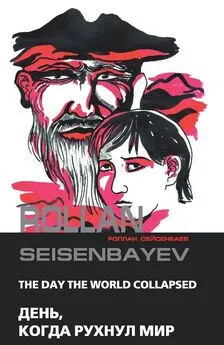
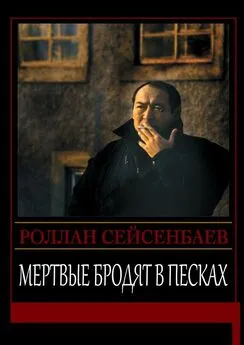
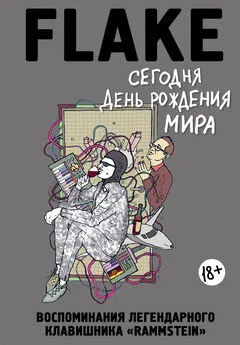
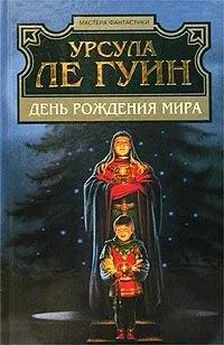
![Кристиан «Флаке» Лоренц - Сегодня День рождения мира [Воспоминания легендарного немецкого клавишника]](/books/1071826/kristian-flake-lorenc-segodnya-den-rozhdeniya-mira.webp)
